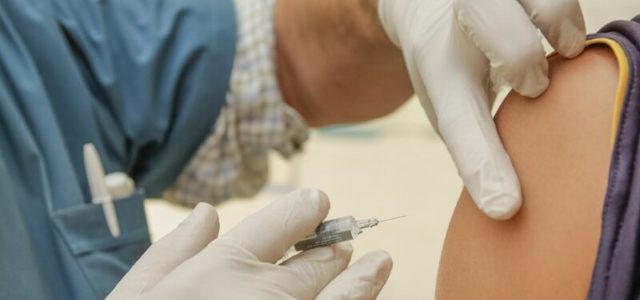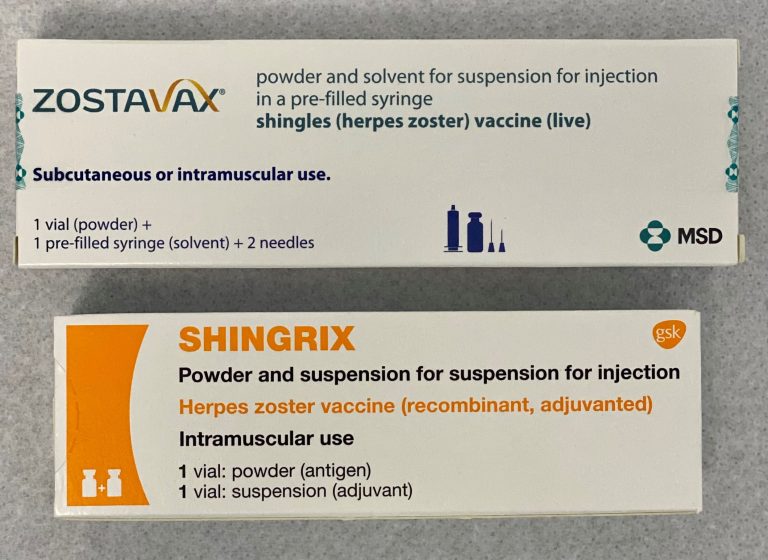GSK plc (LON/NYSE:GSK) has announced that the Japanese Ministry of Health, Labour and Welfare (MHLW) has approved an updated indication for Shingrix (Recombinant Zoster Vaccine, Adjuvanted – RZV) for the prevention of shingles (herpes zoster) in adults aged 18 years and over who are at increased risk of the condition.[1],[2]
· Approval expands the number of people who can be protected against shingles, now including all adults considered at increased risk by their healthcare provider
· Shingrix (Recombinant Zoster Vaccine – RZV) is already approved in Japan for adults aged 50 and over
RZV, a non-live, recombinant sub-unit adjuvanted vaccine, was first approved in 2018 by the Japanese MHLW for shingles prevention in adults aged 50 years and over. This week’s approval represents a significant expansion of RZV’s availability in Japan, now including all adults aged 18 and over considered to be at increased risk of shingles by their healthcare provider.
Nearly all older adults have VZV dormant in their nervous system, waiting to reactivate with advancing age.2,[3],[4] As people age, the strength of the immune system response to infection decreases, increasing the risk of developing shingles.1,2,4,13 People with a suppressed or compromised immune system, are also at high risk of shingles.[5],4 It is estimated that about 600,000 people in Japan develop shingles every year.[6]
The MHLW approval was granted based on data from six clinical trials involving adults aged 18 years and over who were among those at increased risk for shingles, including those who had undergone recent stem cell transplantation or kidney transplant, or who had blood cancer, solid tumours or HIV.5,[7],[8],[9],[10],[11],[12]
About shingles
Shingles, also known as herpes zoster, is caused by a reactivation of the varicella-zoster virus (VZV) – the same virus that causes chickenpox.1
Globally, most people over the age of 50 have dormant VZV in their nervous system and are at risk of developing shingles.2,[13] Shingles typically presents as a rash, with painful blisters across the chest, abdomen or face.1 The pain is often described as aching, burning, stabbing or shock-like.4 Following the rash, a person can also experience PHN, a long-lasting nerve pain that can continue for weeks or months and occasionally persists for several years.4 PHN is the most common complication of shingles, occurring in up to 10-18% of all shingles cases depending on the individual’s age.4
About Shingrix
RZV is a non-live, recombinant sub-unit vaccine approved by the Japanese MHLW on 23 March 2018 to prevent shingles in adults 50 years and over.
It combines an antigen, glycoprotein E, with an adjuvant system, AS01B, and may help overcome the natural age-related decline in responses to immunisation that contribute to the challenge of protecting older adults from shingles.[14],[15] RZV is not indicated to prevent primary varicella infection (chickenpox).
RZV has launched in more than 30 countries for the prevention of shingles in adults aged 50 years and over, and adults aged 18 or over who are or will be at increased risk of shingles. RZV is the only shingles vaccine specifically indicated for those aged 18 or over at increased risk of shingles due to certain underlying diseases, conditions or treatments.[16]
Important Information for Shingrix in Japan
Shingrix (Recombinant Zoster Vaccine – RZV) is a non-live, recombinant sub-unit vaccine indicated for the prevention of herpes zoster (HZ) in adults aged 50 and over, and is the only shingles vaccine specifically indicated for those aged 18 or over at increased risk of HZ due to certain underlying diseases, conditions or treatments.16
Please refer to the updated Product Information (PI) for important dosage, administration, and safety information in Japan which will shortly be updated at this link: https://www.info.pmda.go.jp/psearch/html/menu_tenpu_base.html
[1] Mueller, NH et al. Varicella Zoster Virus Infection: Clinical Features, Molecular Pathogenesis of Disease and Latency. Neurologic Clinics, 2008; 26;675-697.
[2] Bollaerts K et al. Epidemiol Infect 2017;145:2666-2677
[3] Johnson RW et al. Herpes zoster epidemiology, management, and disease and economic burden in Europe: a multidisciplinary perspective. Therapeutic Advances in Vaccines. 2015;3(4):109-120.
[4] Harpaz R et al. Advisory Committee on Immunization Practices (ACIP), Centers for Disease Control and Prevention (CDC). Prevention of herpes zoster: recommendations of the Advisory Committee on Immunization Practices (ACIP). MMWR Recomm Rep. 2008;57(RR-5):1-30.
[5] Huang C-T et al. J Clin Endocrinol Metab 2022;107:586-597
[6] IASR. Epidemiology of herpes zoster in Miyazaki Préfecture 2013; 34;298-300. Available at: https://www.niid.go.jp/niid/ja/iasr-sp/2256-related-articles/related-articles-404/4014-dj4048.html. Last Accessed May 2023.
[7] Bastidas A, et al. JAMA 2019;132:123-133.
[8] Berkowitz EM, et al. J Infect Dis 2015;211:1279-1287.
[9] Vink P, et al. Cancer 2019;125:1301-1312.
[10] Dagnew AF, et al. Lancet Infect Dis 2019;19:988-1000.
[11] Stadtmauer E, et al. Blood. 2014;124(19):2921-2929
[12] Imafuku S et al. Risk of herpes zoster in the Japanese population with immunocompromising and chronic disease conditions: Results from a claims database cohort study, from 2005 to 2014. Journal of Dermatology. 2020; 47: 236-244.
[13] Bricout H et al. “Herpes zoster-associated mortality in Europe: a systematic review.” BMC Public Health 2015, 15:466. Available at: https://doi.org/10.1186/s12889-015-1753-y Last accessed: April 2023.
[14] Cunningham et al. Vaccine profile of herpes zoster (HZ/su) subunit vaccine. Expert Review of Vaccines. 2017; 16:7;661-670.
[15] The GSK proprietary AS01 adjuvant system contains QS-21 Stimulon® adjuvant licensed from Antigenics LLC, a wholly owned subsidiary of Agenus Inc. (NASDAQ: AGEN), MPL and liposomes.
[16] Centers for Disease Control and Prevention (CDC). Shingles vaccination. Available at: https://www.cdc.gov/vaccines/vpd/shingles/public/shingrix/. Last accessed: June 2023.









































